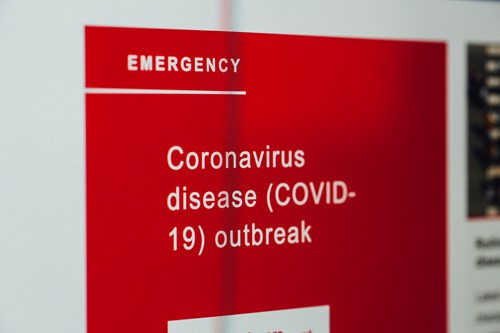A national survey conducted by the Kaiser Family Foundation and The Washington Post reveals worry and stress related to COVID-19 has negatively affected the mental health of most frontline health care workers.

More than a year into the COVID-19 pandemic, a majority of frontline health care workers say the crisis has taken a toll on their mental health, including about 3 in 10 who either received mental health services or thought they needed them directly as a result of the pandemic, according to a national survey conducted by the Kaiser Family Foundation and The Washington Post.
The survey, conducted online and via telephone from February 11-March 7, included 1,327 frontline health care workers who work in a health care delivery setting in direct contact with patients or bodily fluids. It also included a comparison study that allowed researchers to compare frontline health care workers to 971 adults in the general population.
Among the key findings:
- Sixty-two percent of frontline care workers report that worry and stress related to the pandemic has negatively affected their mental health.
- At least 4 in 10 frontline health care workers say that the pandemic has negatively impacted their physical health (49 percent) and their relationships with family members (42 percent) and coworkers (41 percent).
- Others report sleep-related problems (47 percent), frequent headaches or stomachaches (31 percent), and increased alcohol or drug use (16 percent) that they attribute to pandemic-related worry and stress. Fifty-six percent report experiencing at least one of these three issues.
- About 8 in 10 frontline health care workers say concerns about being exposed to COVID-19 at work and exposing others in their household have been sources of stress during the past year, including at least 4 in 10 who say these concerns were “major sources of stress.”
- Sixty-three percent say concern about having enough personal protective equipment has been a source of stress.
- For about 3 in 10 frontline health workers, the mental health challenges led them to obtain mental health care or medications (13 percent) or to think that they needed such services but didn’t get them (18 percent).
- Among those who felt they needed but didn’t get mental health care, the most commonly cited reasons are because they were too busy (27 percent), they were afraid or embarrassed about seeking care (17 percent), they couldn’t afford it (16 percent), or they couldn’t get time off work (14 percent).
- The survey results show that younger frontline health care workers (those under age 30) seem to be the hardest hit, with 75 percent reporting that the pandemic has had a negative impact on their mental health and 69 percent saying they feel “burned out.”
